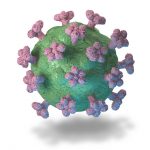
There appears to be quite a contrast among countries with respect to expected mortality from the COVID-19 virus. Everyone by now knows that Wuhan, China, experienced fairly significant mortality with the rapidly evolving infection there along with Italy and to a lesser extent, Spain. The United Kingdom has a smaller infection rate, but that is changing rapidly. The mortality there appears to be lower. However, Germany, that appears to have been doing more testing than any other country, has an extraordinarily low mortality rate. Whether it’s the beer or a better healthcare system or simply that they have a much more accurate “denominator” in calculating mortality, the statistics are quite interesting to say the least. This morning – March 22 – the Guardian reports on all of this with little to explain it other than perhaps better data gathering.
Also Korea seems to have an extraordinarily low mortality for some of the same reasons that Germany has – and much larger documented number of cases. They have taken a much more liberal approach without shutting the country down. They claim that there is likely rapidly developing “herd immunity” in the population that is otherwise healthy. In other words they are betting on the fact that preventing the spread of the virus is more a function of disarming it with an immunologically healthy population then simply by locking people in their homes. Perhaps time will tell, but there are some plausible explanations.
With Korea’s numbers having shot up just within the last three weeks, the risk of a sudden death surge, as the disease works its course through the biologies of thousands of infected, remains a possibility.
On the other hand, the low ratio of death-to-infection could continue. If so, Korea’s extensive dataset could prove Covid-19 far less lethal than many fear.
One expert believes Korea’s numbers are superior to the WHO’s.
“Death rates are almost always overestimates as they miss tons of people who don’t have [symptoms],” said a US-based statistical geneticist who requested anonymity. “False positive are less of an issue than untested masses.”
He added: “It is consistently in the interest of medical pros to overstate risks in order to win more funding from governments: ‘Fund me and you might not die,’ is a compelling argument!”
Culture-specific factors could be at work. In previous epidemics, some postulated that the Korean diet – heavy on such supposedly immune-boosting ingredients as garlic – might offer the populace superior in-body defenses.
Still none of the medical leadership in America has put forth very much in the way of hope for better treatment other than intensive care in the face of critical illness. Even with hydroxychloroquine and chloroquine being distinct possibilities as treatments or even prophylaxis, Dr. Anthony Fauci, the head of the COVID-19 task force and the current Director of the National Institute of Allergy and Infectious Diseases section of the National Institute of Health, seems to disagree. He feels that there must be some scientific, randomized controlled trial done before this simple and inexpensive off label treatment strategy can be recommended. Hydroxychloroquine is a drug literally used every day in clinical practice for rheumatoid disease and systemic lupus as well as occasionally for individuals with chronic joint pain associated with Lyme disease. It’s not clear as to why one would be against giving this medication a try since there is very little else to offer pharmacologically.
Of course, there are many other things that could be used that have been shown to be very supportive of individuals with viral illnesses and perhaps prevent progression to more critical levels of morbidity. The British Medical Journal has offered a brief summary of all of the “official” conclusions so far regarding various treatments that are either being considered or are in some type of clinical trial. On the nutrition side the Institute for Functional Medicine has a whole page of “suggestions” — very carefully worded so as not to get on the wrong side of the FDA. Nonetheless, it is worth a look. The suggestions largely reflect what the naturopathic and integrative medical community are recommending.
Finally, there is a lot to be said about creating general “resilience” to viral infections of any kind. After all, we are hosts for a broad variety of viruses – almost a menagerie even in healthy people. More than 90% of the human race harbors Epstein-Barr virus, for example. It is the variety of things that perturbed the immune system that makes one vulnerable to having these viruses become “reactivated” or new viruses become pathogens quickly. Here is a gentleman that I respect greatly who is a wealth of information regarding methods for maintaining great resilience in the face of infections and stress.